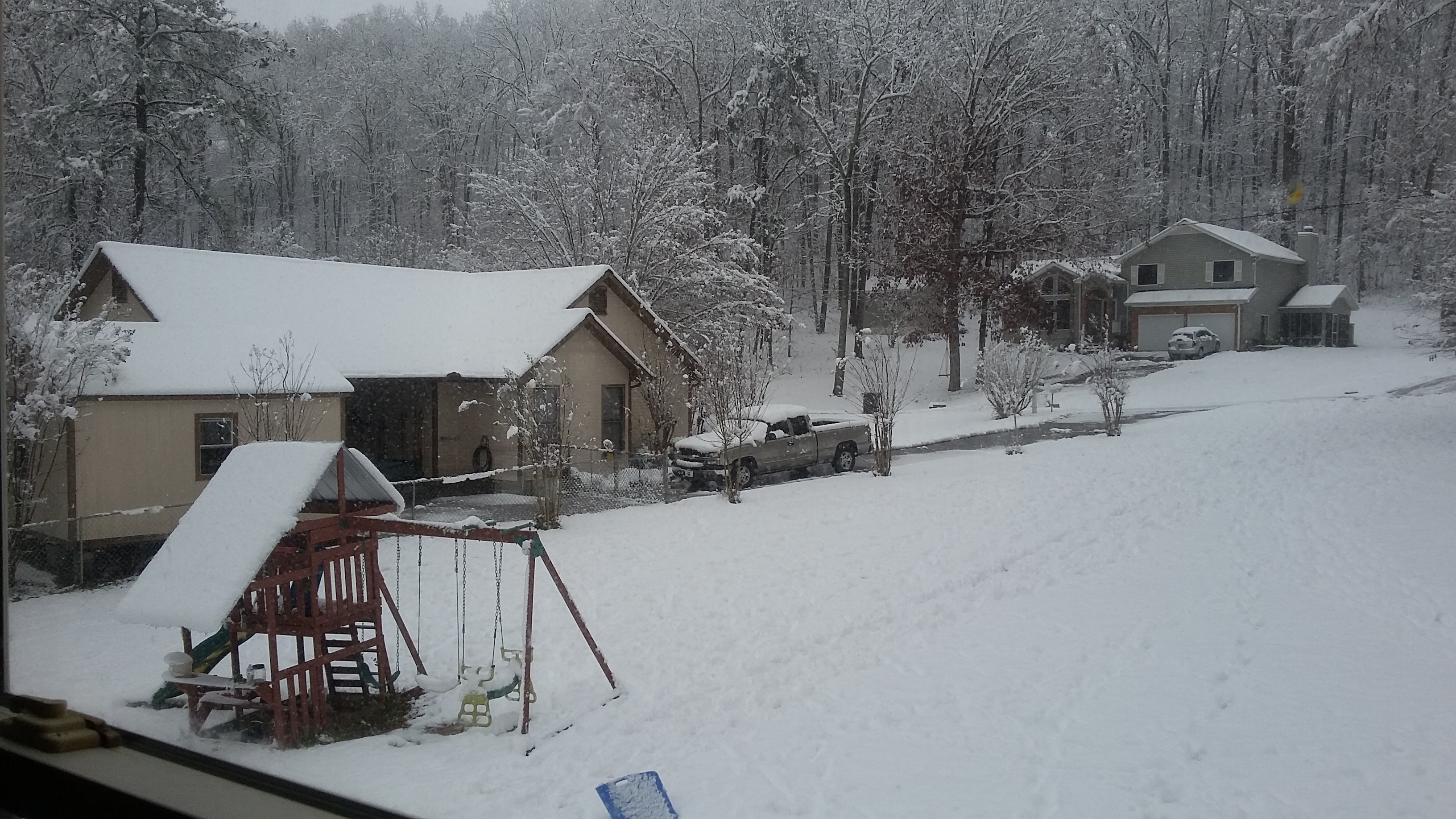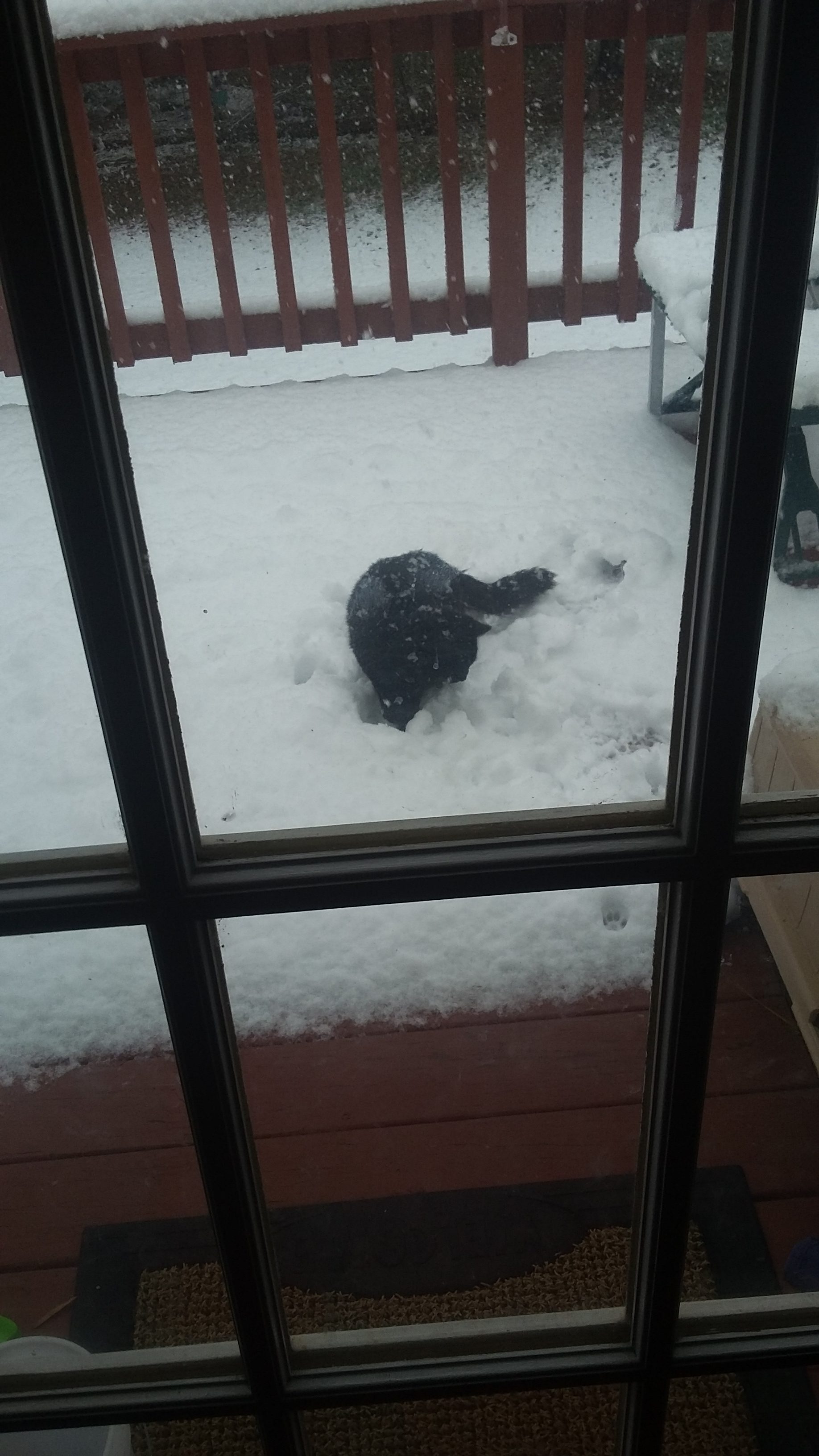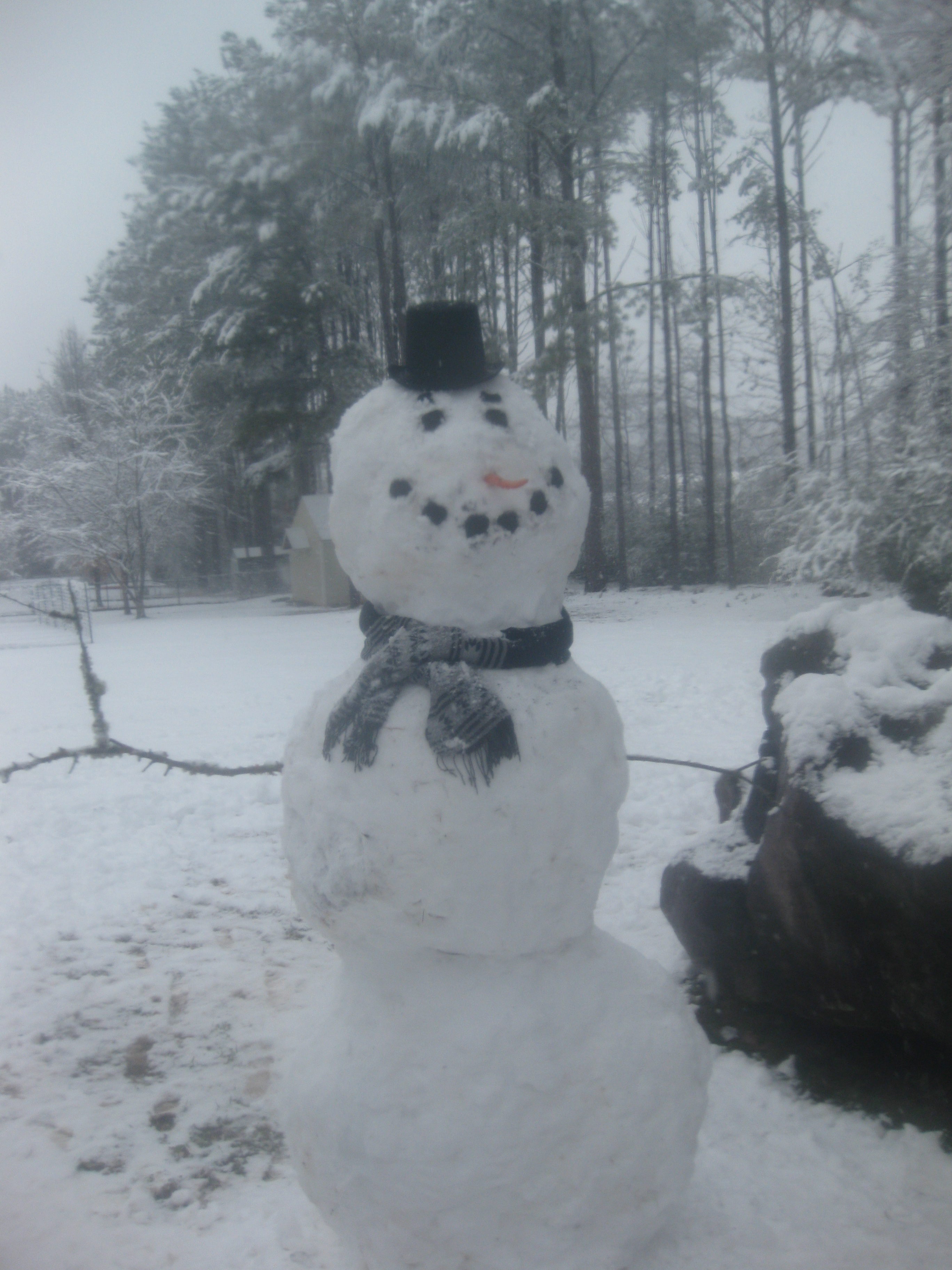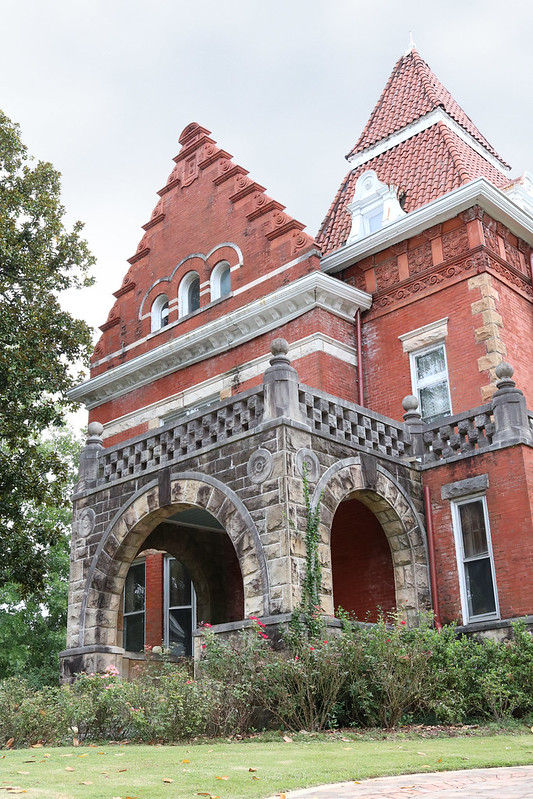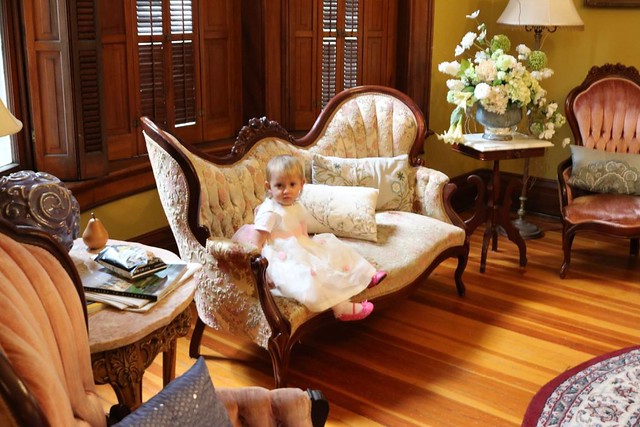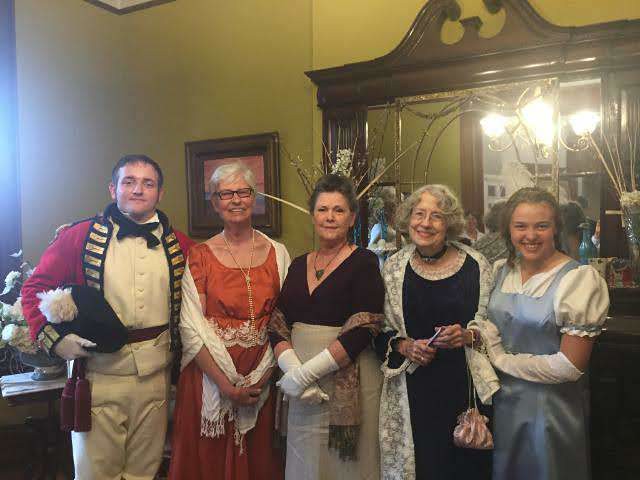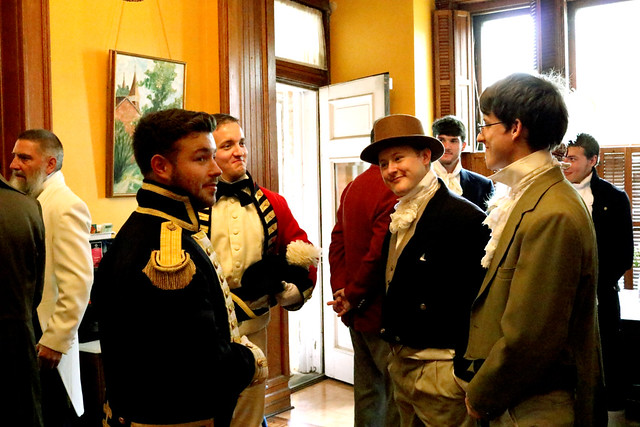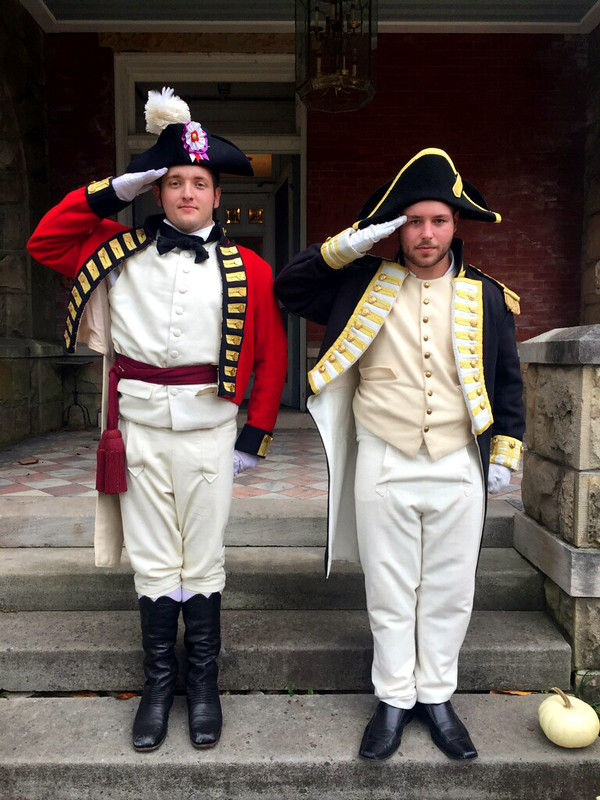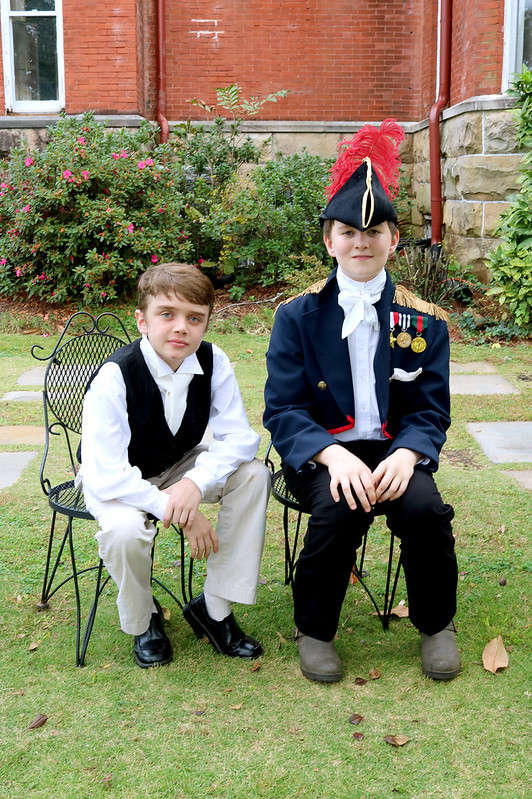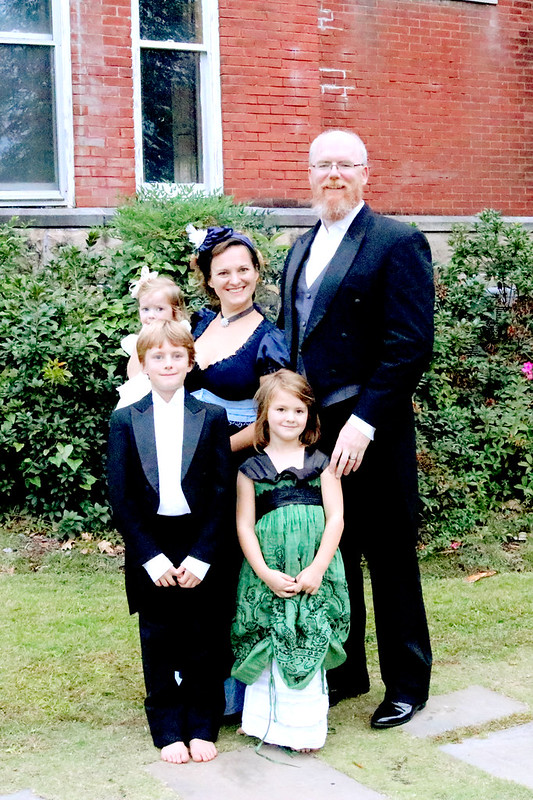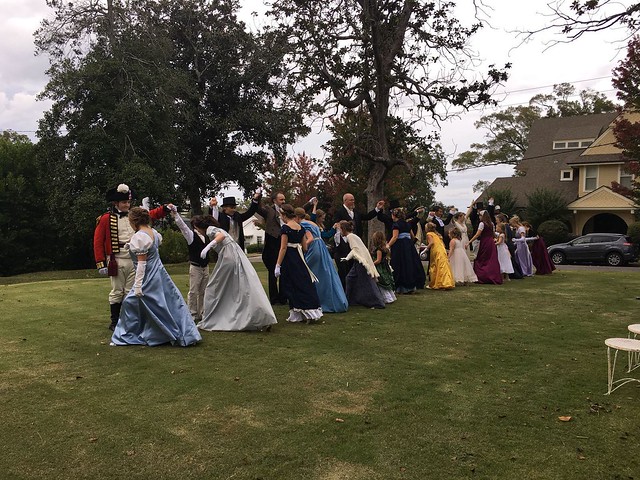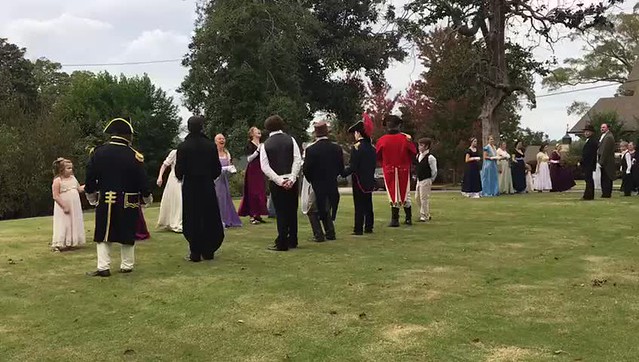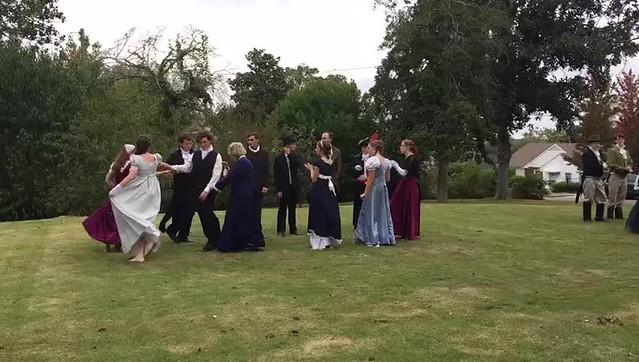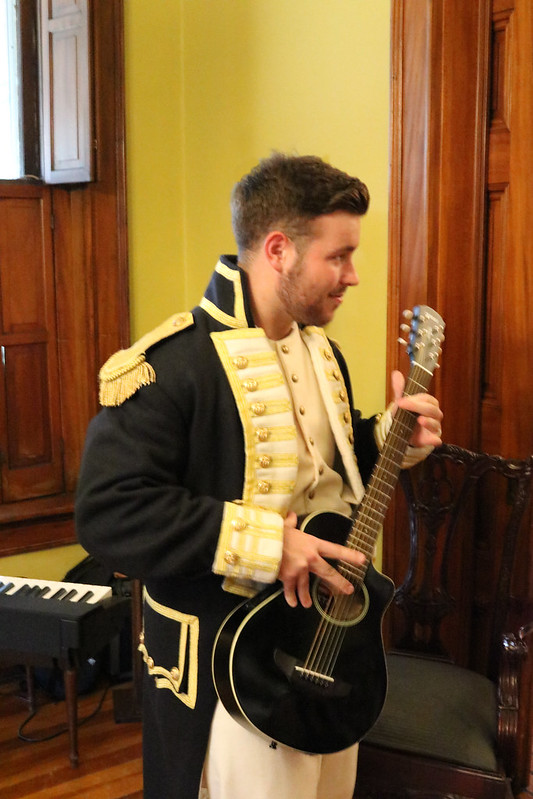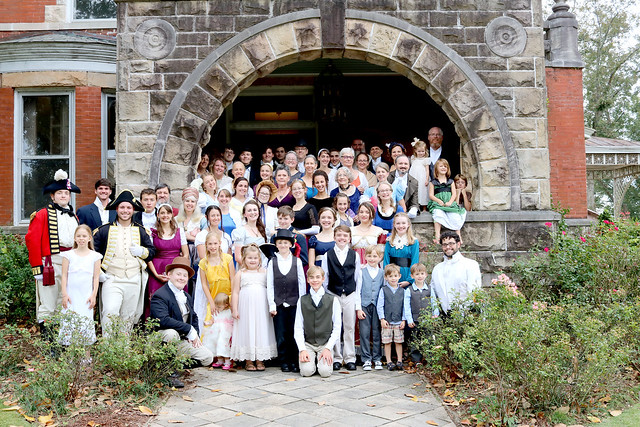One day, four-year-old Marilyn was in her room when suddenly she heard Mother call, “Come, Marilyn! We have to eat supper before church starts!” Marilyn hurriedly changed into her white church dress with lace on the edges. She ran down the stairs and quickly grabbed her apron, knowing she would spoil her dress if she did not wear it.
“Please tie it, Mother,” she requested.
“You should have waited until after supper to change your dress, but regardless–” her mother said, tying it for her. Marilyn happily sat down and Dad said grace. As soon as supper was done, she pulled off her apron and ran to her parent’s bedroom. She opened a door at the back end of the bedroom which opened to a hallway. She ran through the hallway, opened the door at the other end, and entered the church.
The church, which Dad had started not long ago, was in a storefront. Dad had finished his supper before her and was already in the church preparing for the service. Marilyn walked toward him. “My little Marilyn,” he declared, as he scooped her up in his arms, “are you ready for church? The place is bound to be be packed tonight.”
“Yes, Dad, I am ready,” Marilyn said. Then her grandparents came. “Mum! Pa!” Marilyn called, squirming out of her Dad’s arms and running to them. Dad chuckled as Marilyn received warm hugs from her grandparents. Soon other people started to enter. Lester and Grace Gray came in with their daughters Delores and Dorothy. Marilyn ran to Delores, who was only three weeks younger than her. They were good friends. The two girls went to the pew in front of Mother. Once every pew was filled, Dad went up to the pulpit and led everyone in singing hymns.
O victory in Jesus,
My Savior, forever.
He sought me and bought me
With His redeeming blood;
He loved me ere I knew Him
And all my love is due Him,
He plunged me to victory,
Beneath the cleansing flood.
Then the accordion started and they sang another hymn.
What have I to dread, what have I to fear,
Leaning on the everlasting arms?
I have blessed peace with my Lord so near,
Leaning on the everlasting arms.
Leaning, leaning,
Safe and secure from all alarms;
Leaning, leaning,
Leaning on the everlasting arms.
Marilyn and Delores both loved to sing, and they sang loudly. Then it was testimony time.
“Who has a testimony they would like to share this evening?” Dad asked loudly.
One man, who did not always think through things well, stood to his feet and said bluntly, “I’m on my way to church, and this guy comes up to me and he’s drunk. And I said, ‘Why don’t you come to church with me?’ He did not want to, so I thought of the song, ‘Leave It There,’ so I left him there.”
All of a sudden, Marilyn heard Mum exclaim, “Ohhh!” Marilyn turned quickly to see Mum with her hand over her mouth to keep from laughing as she fell sideways onto the pew. “Leave It There” was a song they often sang.
Leave it there, leave it there,
Take your burden to the Lord and leave it there.
Marilyn could not help but laugh at Mum. Mother gave her a ping on the head with her finger for laughing in church. Then it was time for Dad to preach the message.
“I do not usually give my sermons a name,” Dad said with a chuckle. “But I want to name this sermon ‘Saved, Sanctified, and Filled With the Holy Ghost’ because that is what we, as Christians, should be. Now everyone please turn to the Book of John, chapter fourteen.”
When the pages stopped rustling, he began speaking again. “First we should be saved through Jesus’ redeeming blood. We should confess our sins and believe in Him. As Paul and Silas said to the jailer in the Book of Acts, chapter 16, verse 31, ‘Believe on the Lord Jesus Christ, and thou shalt be saved, and thy house.‘
“Salvation is the only way to heaven, as Jesus said in the Book of John, chapter 14, verse 6, ‘I am the way, the truth, and the life: no man cometh unto the Father, but by me.’
“Being saved is the start of a true relationship with God. If you are not saved, then you are bound for hell. That is how important salvation is. We can not go to God except through Jesus. Jesus can save us because of what He did at Calvary. He died to take away our sins and bring us to God. He came to seek and to save, as it says in the Book of Luke, chapter 19, verse 10, ‘ For the Son of man is come to seek and to save that which was lost.‘ If you believe on Him, you can be saved too.
“Then you need to become sanctified. Sanctified means holy. It is when you become, or try to become, more like God and less worldly. You become different than the world when you start acting differently than the world–when you live for God and not yourself. Living for God sanctifies you because it takes you even closer to God. John chapter 14, verse 23 says, ‘Jesus answered and said unto him, “If a man love me, he will keep my words: and my Father will love him, and we will come unto him, and make our abode with him.”‘
“Also, in verse 15, ‘If ye love me, keep my commandments.’
“All in all, sanctification is when we obey God’s commandments and draw closer to Him.
“So now, do you know what Jesus will do after you are sanctified? Verses 16 and 17 say, ‘And I will pray the Father, and he shall give you another Comforter, that he may abide with you for ever; even the Spirit of truth; whom the world cannot receive, because it seeth him not, neither knoweth him: but ye know him; for he dwelleth with you, and shall be in you.’
“We can receive the gift that the world does not understand. We can be ‘filled with the Holy Ghost,’ as I said in my sermon title. The Holy Ghost will comfort us and guide us in the vicissitudes of life. The Holy Ghost will also help us to know what to say when we are uncertain. In the Book of Matthew, chapter 10, verses 19 and 20, it says, ‘But when they deliver you up, take no thought how or what ye shall speak: for it shall be given you in that same hour what ye shall speak. For it is not ye that speak, but the Spirit of your Father which speaketh in you.”
Then Dad invited anyone forward who wanted to receive the gift of salvation or the Holy Ghost. As always, Marilyn went forward with tears of penitence streaming down her face.

